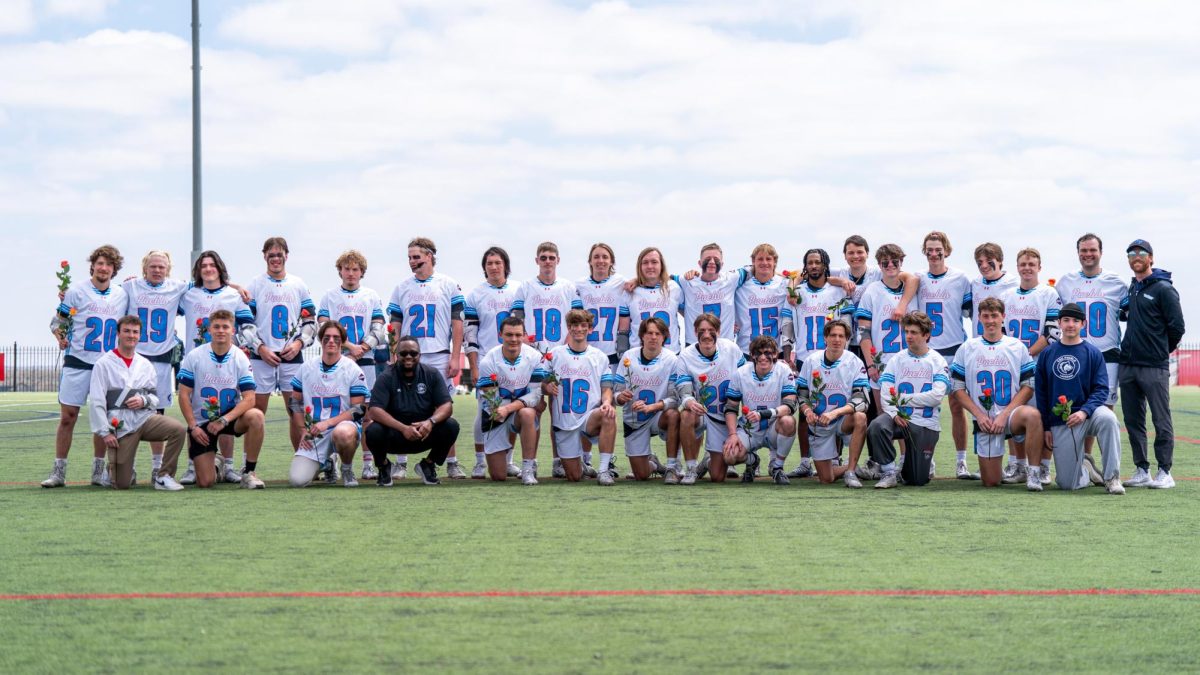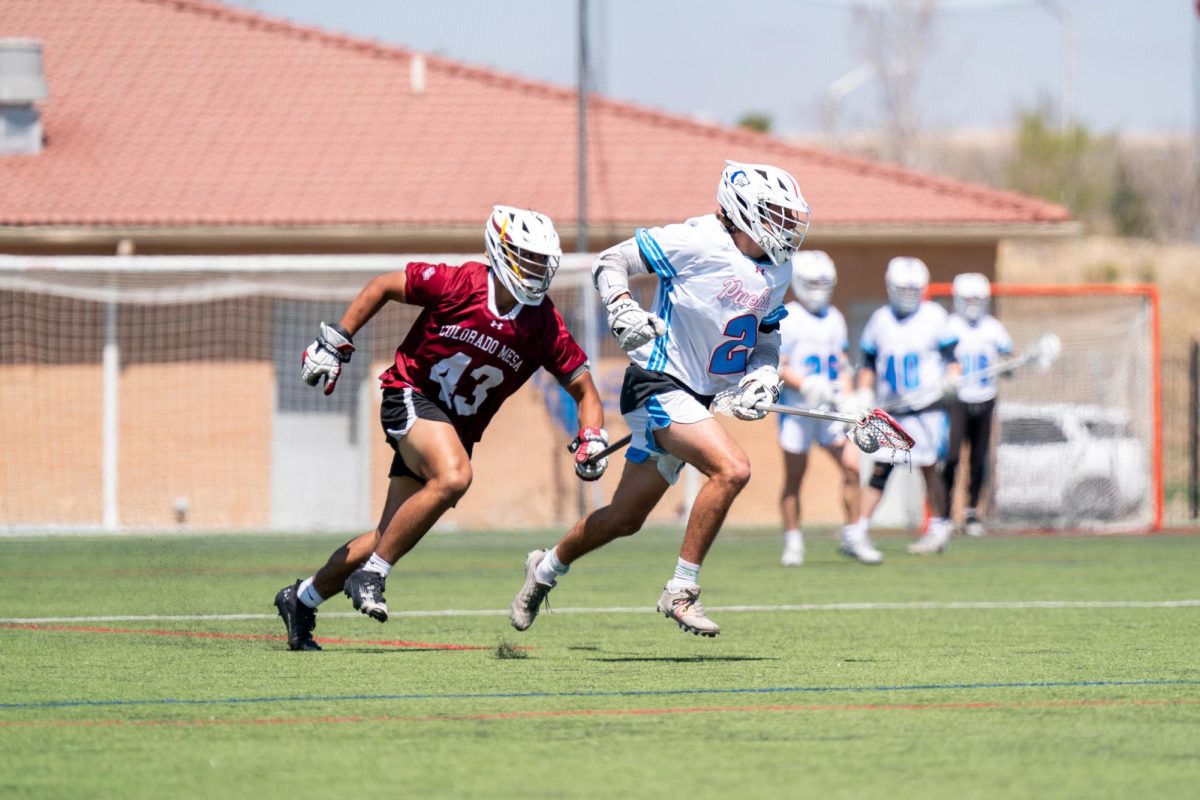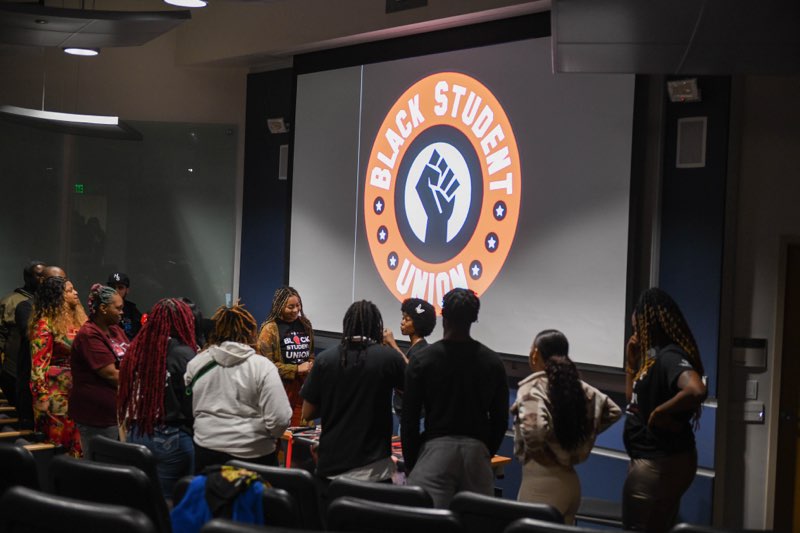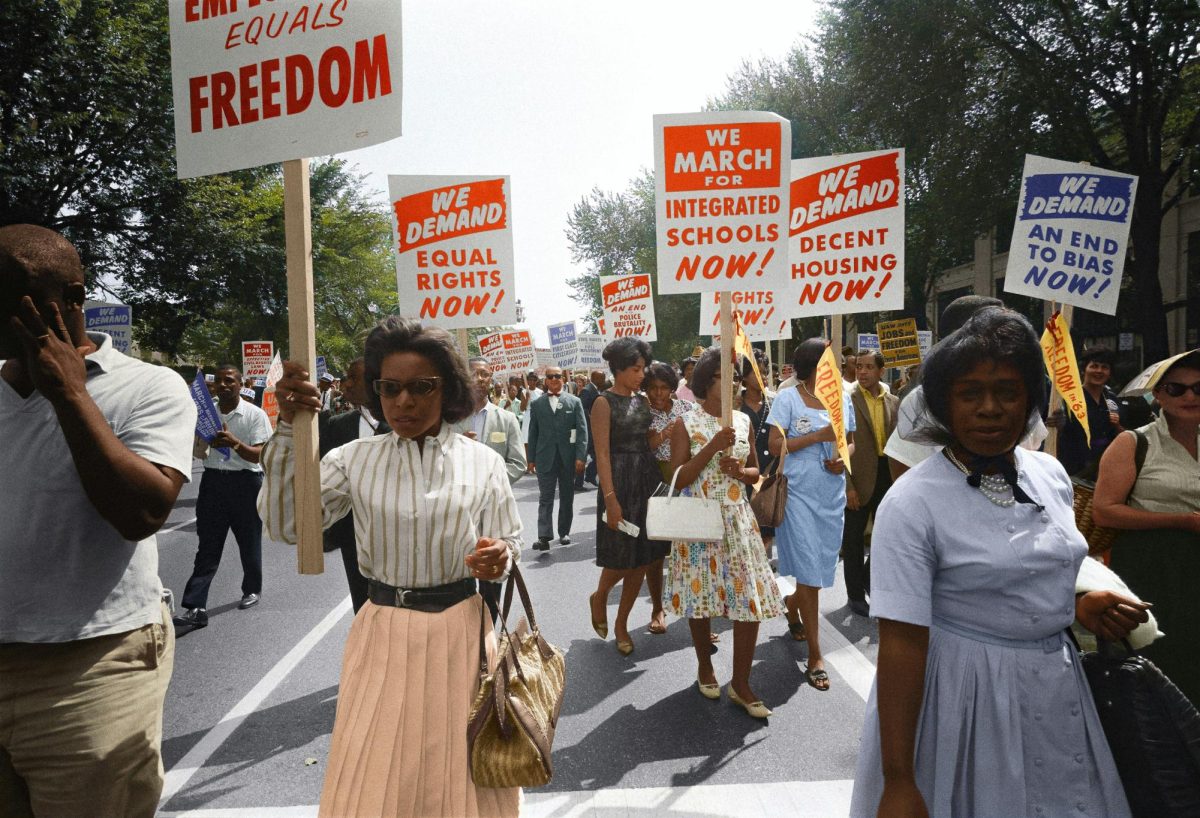“If you are afraid of diversity,” Moussa Diawara said, “then you are losing.”
Diawara, a professor of biology at Colorado State University-Pueblo, gave his speech, “Contributions of African-Americans,” in the Diversity Resource Center on Wednesday, Feb. 3.
Diawara’s speech was the first in the series “Re-Thinking Diversity,” sponsored by the Diversity Resource Center. The series will be held from 11:30 a.m. to 12:30 p.m., every Wednesday during February in the Diversity Resource Center at CSU-Pueblo. Each week the series will feature a different professor from CSU-Pueblo discussing black history, within their field of study.
“Contributions of African Americans” was about prominent figures in the African-American culture that changed quality of life for black people, and all people, despite their adversity.
In his speech, Diawara discussed the scientific, economic, political and cultural contributions of African- American people in American history, focusing on what he believed to be the most significant figures in each category.
“If you stopped at a stoplight this morning, thank a black person,” Diawara said.
He then discussed African-American scientists and inventors. In 1923, Garret Augustus Morgan of Paris, Ky., invented and patented the traffic light. He also patented designs for the gas mask and a safety hood, Diawara said.
Among the other African-American scientists Diawara spoke of were Percy Lavon Julian, a research chemist who worked with human hormones and developed the original birth control pill.
He then spoke about Charles Richard Drew, a medical doctor and surgeon who discovered that blood plasma lasted longer than blood cells. Drew’s discovery led to the invention of blood banks and eventually to the start of the American Red Cross, Diawara said.
Diawara also discussed African-American inventors, to include Elijah McCoy, who invented and patented what is known today as the oil pump, in 1872, and Maggie Lena Walker, who was the first American woman to become the president and owner of a bank in 1903.
Diawara, a naturalized U.S. citizen originally from Mali, Africa, reminisced about hearing of African-American singers and athletes. He showed the audience stamps of Louis Armstrong from Africa. Music is one of the most important American exports, Diawara said.
He then talked about African-Americans who impacted American culture beginning with Jackie Robinson, who was the first African-American baseball player in Major League Baseball. The most significant thing about the athlete, Diawara said, was his sports management ability.
“He wanted a bigger piece of the pie,” Diawara said. He didn’t allow his agent to take the majority of his earnings and his stance changed sports management for all athletes, Diawara said.
In 1960, Wilma Rudolph became the first American woman to win three gold medals at the Rome Olympics. When she returned to her hometown of Clarksville, Tenn., the city wanted to throw her a celebration. In order for her to attend, she required that the city be desegregated, and it was, Diawara said.
“She inspired women around the world to know that they can do anything,” Diawara said.
In his speech, Diawara said that African-Americans have had many accomplishments despite their economic standing and their population, which is seven percent of the population today or a little more than 30 million people.
“In this country, our genetic makeup dictates our characteristics and the amount of accomplishments a group of people can achieve,” Diawara said.
Crispus Attucks escaped from slavery and was the first of five Americans killed during the first fight of the Revolutionary War in 1770. In 1888, a statue was built in his memory after his death in Boston, Diawara said.
“What he didn’t know was that his death was not going to mean anything to the law makers of this country,” Diawara said.
Diawara explained that more than in 1857, 80 years later, Dred Scott, an African-American man born into slavery, sued for his freedom and the freedom of his wife. The U.S. Supreme Court ruled against him finding that neither he, nor any person of African ancestry, could claim citizenship in the United States, therefore Scott could not bring suit in federal court under diversity of citizenship rules.
Diawara also talked about the political efforts of Harriet Tubman, who established the Underground Railroad, Rosa Parks and Martin Luther King Jr., civil rights movement leaders, and Justice Thurgood Marshall, the first African-American Supreme Court justice and a lawyer in the case of Brown v. Board of Education of Topeka. The case overthrew the 1879 doctrine, “separate but equal,” by desegregating public schools in America.
He ended his speech by encouraging students to never give up despite adversity.
“Adversity can be good for you,” Diawara said. “That struggle made them strive.”










Michelle Rodriguez • Mar 25, 2010 at 12:07 am
This article was very informative and well written! Diawara is an inspirational speaker.